IELTS Writing Task 2 Argumentative Essay Topic : Very Few School Children Learn About the Value of Money
Level up your preparation with the IELTS Writing Task 2 Argumentative Essay Topic : Very Few School Children Learn About the Value of Money along with Band 7, 8, and 9 Sample Answers. Learn the strategies to attempt essay question and get a band 8+.
Table of Contents
- Strategies to Attempt the IELTS Writing Task 2 Argumentative Essay Topic : Very Few School Children Learn About the Value of Money
- Structure Breakdown - IELTS Writing Task 2 Argumentative Essay Topic : Very Few School Children Learn About the Value of Money
- Band 7 Sample Answer for IELTS Writing Task 2 Argumentative Essay Topic : Very Few School Children Learn About the Value of Money
- Band 8 Sample Answer for IELTS Writing Task 2 Argumentative Essay Topic : Very Few School Children Learn About the Value of Money
- Band 9 Sample Answer for IELTS Writing Task 2 Argumentative Essay Topic : Very Few School Children Learn About the Value of Money

Try AI Essay Checker for Instant Band Score
The IELTS Writing Task 2 is a crucial part of both the General Training and Academic versions of the IELTS exam. It assesses your ability to write a well-structured and cohesive essay in response to the IELTS Writing Task 2 Argumentative Essay Topic : Very Few School Children Learn About the Value of Money. Many IELTS test-takers find the essay writing portion of the Writing module to be particularly challenging.
In this task, you will be presented with a prompt for Agree Disagree Essays in IELTS, where you are presented with a statement or opinion, and you are asked to either agree or disagree with it. Therefore, it is essential to develop your essay writing skills effectively before taking the IELTS Exam. To effectively prepare for the IELTS Writing Task 2, it is highly recommended to practice with a variety of sample essays. can help you hone your essay writing skills and achieve a high score in the exam.
Let's check it out!
Connect with our IELTS Experts to crack your IELTS Writing and ace the exam with a band 8+! Book a Free Demo.
Strategies to Attempt the IELTS Writing Task 2 Argumentative Essay Topic : Very Few School Children Learn About the Value of Money
You must incorporate a few strategies which need to be set in place so that you can attain an IELTS Band Score of 8+. Remember that organization, clarity of ideas, appropriate usage of vocabulary, and sentence sentence structures will be considered. Practicing with effective strategies will associate with the needed writing skills for scoring high in this section. Below are some ways you can use to ace the IELTS Writing Task 2 Argumentative Essay Topic : Very Few School Children Learn About the Value of Money.
- Always have your essay planned and organized before putting your thoughts down on paper. This will help with your organization skills with your thought process and writing the essay based on ideas would also become very clear in a logical flow.
- Elaborate on the reasons in the body paragraphs for justifications but do not overdo it. Excessive elaboration may affect the arrangement of ideas which would further affect your score. So, it is advisable to follow the word count in the IELTS Writing Module and keep track of the length of your writing.
- Try to brainstorm ideas and write the essay with the timer on before you look at the sample answers. This would allow you to identify problems and make corrections. While doing so, you build confidence in your exam by reflecting on the improvements you need.
- Your essay should have more complex sentence structures along with the correct form of tense. Therefore, get well-versed with the knowledge of key topics from IELTS Grammar so that you can score well.
- There are many essay formats for which before starting with the question, first identify the type of essay. Also, make use of evidence as examples rather than personal experience when giving your examples in stating your reasons.
- Do not use repeated words as you might score less in Lexical Resources. In this case, employ IELTS Vocabulary for introducing new or similar meaning words into your essay when you next attempt any writing task.
List of Connectors & Linking Words for IELTS Writing Task 2 Argumentative Essay Topic : Very Few School Children Learn About the Value of Money
Connectors & Linking Words for IELTS Writing Task 2, also known as connectives or transition words, are words or phrases that link ideas or parts of a sentence or paragraph together. Here are some of the connectors which you can use as you attempt the IELTS Writing Task 2 Argumentative Essay Topic : Very Few School Children Learn About the Value of Money.
- In my opinion
- while
- in this essay
- I believe
- for instance
- additionally
- therefore
- In conclusion
- hence
- overall
Question - IELTS Writing Task 2 Argumentative Essay Topic : Very Few School Children Learn About the Value of Money
You should spend about 40 minutes on this task.
Very few school children learn about the value of money and how to look after it, yet this is a critical life skill that should be taught as a part of the school curriculum. Do you agree or disagree?
Give reasons for your answer and support your arguments with examples and relevant evidence.
You should write at least 250 words.
Structure Breakdown - IELTS Writing Task 2 Argumentative Essay Topic : Very Few School Children Learn About the Value of Money
To get started with brainstorming, you have to know the steps which you can follow while addressing the IELTS Writing Task 2 Argumentative Essay Topic : Very Few School Children Learn About the Value of Money. The below pattern can be followed in writing this essay.
|
Introduction
Body Paragraph 1
Body paragraph 2
Conclusion
|
Get the Tips & Tricks for cracking IELTS and get started with your IELTS preparation for a band 8+!
Band 7 Sample Answer for IELTS Writing Task 2 Argumentative Essay Topic : Very Few School Children Learn About the Value of Money
In education, there’s a tendency to emphasize academic subjects, overlooking crucial money management skills. This results in many successful students struggling with finances later on. I believe it’s crucial to include lessons on the value of money and money management in school curricula. This essay will explain why, highlighting how this education can positively impact students’ financial well-being.
The main point is about the importance of Financial Independence, as explained in “Rich Dad Poor Dad.” This involves the ability to make money work for individuals, a skill not often taught in traditional education. Students who understand how to spend, invest, and save money are more likely to avoid financial problems, regardless of their income. For instance, those who receive guidance from family and teachers in these areas tend to become financially wise individuals, capable of successfully managing personal finances.
The second important point highlights the lasting effects of not having money management skills. People without these skills tend to depend on their jobs, spending most of their earnings on expenses and saving little for the future. This lack of asset growth leads to ongoing financial dependence. Including money management in the school curriculum ensures that all students, regardless of their background, can learn these important skills.
In summary, while life’s main goal isn’t just about making money, it is undeniably crucial for meeting our basic needs and feeling secure. Learning how to handle money is a fundamental part of life. To conclude, including lessons on financial management in school curricula is not just a good idea but necessary. This ensures that a wide range of students can establish a basis for a financially secure future. (275 words).
Band 7 Vocabulary for IELTS Writing Task 2 Argumentative Essay Topic : Very Few School Children Learn About the Value of Money
Emphasize:
- Meaning: To give special importance or attention to something.
- Example: Teachers often emphasize the importance of good study habits for academic success.
Overlook:
- Meaning: To fail to notice or consider something.
- Example: It’s common for people to overlook the significance of regular exercise for overall well-being.
Crucial:
- Meaning: Extremely important or essential.
- Example: Time management is crucial for success in both academic and professional pursuits.
Curriculum:
- Meaning: The subjects comprising a course of study in a school or college.
- Example: The school’s curriculum includes a diverse range of subjects to provide a well-rounded education.
Financial Well-being:
- Meaning: The state of having one’s finances in good order, ensuring financial security and comfort.
- Example: Proper budgeting and saving contribute to long-term financial well-being.
Financial Independence:
- Meaning: The ability to support oneself financially without relying on others.
- Example: Achieving financial independence often involves strategic investments and savings.
Depend:
- Meaning: To rely on or be influenced by something.
- Example: Successful businesses depend on customer satisfaction for long-term success.
Expense:
- Meaning: The cost required for something; money spent on a particular item or activity.
- Example: Rent and utilities are common monthly expenses for individuals living on their own.
Fundamental:
- Meaning: Forming a necessary base or core; essential.
- Example: Learning basic mathematics is fundamental to understanding more advanced concepts.
Self–reliant:
- Meaning: Capable of relying on oneself and being independent.
- Example: After learning various life skills, the teenager became more self-reliant in managing daily tasks.
Band 8 Sample Answer for IELTS Writing Task 2 Argumentative Essay Topic : Very Few School Children Learn About the Value of Money
Money management is undoubtedly a crucial skill, and the question of whether it should be part of the academic curriculum is subject to debate. Many schools already grapple with a myriad of subjects, and adding personal finance to the syllabus could further complicate matters. Additionally, the practical nature of this skill suggests that traditional lectures and exams may not be the most effective means of imparting it. Consequently, I contend that parents should assume the responsibility for teaching money management.
Firstly, grasping the practical aspects of personal finances, such as earning, saving, and investing money, cannot be fully achieved through theoretical classes. Teachers may not be in a position to decide whether a student should balance work and studies or effectively manage their finances. In contrast, parents are ideally positioned to monitor and guide their children in these crucial aspects, instilling in them the value of money and fostering a sense of responsibility.
Furthermore, money management is a nuanced skill that goes beyond the scope of traditional classroom instruction. A one-size-fits-all approach may not be suitable for every student, as each family has its unique financial circumstances. Parents, intimately familiar with their children’s backgrounds, can provide tailored guidance, ensuring that financial education aligns with individual needs and situations.
In conclusion, while the importance of money management is undeniable, the conventional classroom setting may not be the most effective platform for its development. Instead, parents, equipped with personal insights and a deeper understanding of their children’s circumstances, are better placed to impart this essential life skill and prepare the younger generation for financial independence. (263 words)
Band 8 Vocabulary for IELTS Writing Task 2 Argumentative Essay Topic : Very Few School Children Learn About the Value of Money
Crucial:
- Meaning: Extremely important or necessary.
- Example: Effective communication is crucial for building strong relationships.
Myriad:
- Meaning: A countless or extremely large number.
- Example: There are a myriad of ways to approach problem-solving.
Complicate:
- Meaning: To make something more intricate or complex.
- Example: Adding too many details can complicate a straightforward explanation.
Consequently:
- Meaning: As a result or effect of something.
- Example: She forgot her umbrella, and consequently, got soaked in the rain.
Purview:
- Meaning: The scope or range of authority, influence, or understanding.
- Example: The new legislation extends the government’s purview over environmental issues.
Nuanced:
- Meaning: Characterized by subtle shades of meaning or expression.
- Example: The author’s writing is nuanced, capturing the complexity of human emotions.
Tailored:
- Meaning: Customized or specially designed for a particular purpose.
- Example: The training program was tailored to meet the unique needs of each employee.
Impart:
- Meaning: To convey information or knowledge.
- Example: Teachers aim to impart not only facts but also critical thinking skills.
Foster:
- Meaning: To promote the growth or development of something.
- Example: The organization works to foster a sense of community among its members.
Independence:
- Meaning: The state of being free from outside control or support.
- Example: Achieving financial independence is a common goal for many individuals.
Prepare with the Common IELTS Essay Topics for Writing Task 2 and take a step towards achieving a band 8+.
Band 9 Sample Answer for IELTS Writing Task 2 Argumentative Essay Topic : Very Few School Children Learn About the Value of Money
Unlock Explanations
If you want to have a look at the band 9 sample answer, sign up!
The incorporation of financial education into the school curriculum is a matter of paramount importance, given the dearth of opportunities for school children to learn about the value of money and its prudent management. With this perspective, I firmly believe that financial literacy is a critical life skill that warrants inclusion in the educational framework. This essay will elucidate the reasons behind this stance, highlighting the benefits of teaching students about the value of money and how to manage it effectively.
The first key point underscores the notion that financial literacy is essential for responsible citizenship. As students transition into adulthood, they face a myriad of financial decisions, including personal budgeting and consumer choices. Integrating lessons on money management into the curriculum empowers students with the necessary knowledge and skills to navigate these challenges successfully. For instance, understanding the concept of budgeting equips students to make informed decisions about their spending habits, laying the foundation for responsible financial behavior in the future.
The second main point emphasizes the long-term economic benefits of incorporating financial education into the school curriculum. A lack of financial literacy can lead to poor decision-making, debt accumulation, and overall financial instability. By instilling a solid foundation in financial education, schools contribute to the development of a financially savvy and responsible citizenry.
To conclude, in my opinion, adding financial education to school curricula is crucial because knowing how to handle money is a vital life skill. Schools, through promoting financial literacy, play a key role in shaping responsible individuals and enhancing overall societal well-being. Including financial education is not just a choice but a societal necessity as we prepare students for the challenges of the modern world. (280 words)
Band 9 Vocabulary for IELTS Writing Task 2 Argumentative Essay Topic : Very Few School Children Learn About the Value of Money
Incorporation:
- Meaning: The act of including or integrating something into a larger whole.
- Example: The incorporation of technology into the classroom has significantly enhanced the learning experience.
Paramount:
- Meaning: Of the highest importance or significance.
- Example: The safety of the passengers is paramount for the airline industry.
Dearth:
- Meaning: A scarcity or lack of something.
- Example: The drought led to a dearth of water resources in the region.
Warrants:
- Meaning: Justifies or necessitates.
- Example: The alarming increase in crime rates warrants immediate attention from law enforcement.
Elucidate:
- Meaning: To explain or make something clear.
- Example: The professor clarified the complex concept to the students, elucidating its practical applications.
Myriad:
- Meaning: A countless or extremely large number.
- Example: There are a myriad of possibilities when it comes to career choices in today’s diverse job market.
Citizenship:
- Meaning: The status of being a member of a particular country and having the rights and responsibilities that come with it.
- Example: Acquiring citizenship often involves fulfilling specific legal requirements.
Instilling:
- Meaning: Gradually but firmly establishing an idea or attitude.
- Example: Parents play a crucial role in instilling values and principles in their children.
Savvy:
- Meaning: Shrewdness and practical knowledge, especially in social or business situations.
- Example: A savvy investor knows how to make wise financial decisions in unpredictable markets.
Necessity:
- Meaning: Something that is required or indispensable.
- Example: Learning basic computer skills has become a necessity in today’s technology-driven world.
Grab the Vocabulary for IELTS (Essential words for popular topics in IELTS) and ace the IELTS exam!
To achieve a higher band score in the IELTS Exam, you would strategize and practice consistently in order to write on diverse issues on the day of the test. Always remember to present your argument clearly and support it with relevant examples that are well arranged in an orderly manner. Make sure you do not forget to look at the coherence and the usage of appropriate vocabulary. By familiarizing yourself with the structures, you will be able to achieve more on the task response and surely help you achieve a band score of 8+.
More Writing Task 2 Topics:
Also check :
Practice IELTS Writing Task 2 based on Essay types

Start Preparing for IELTS: Get Your 10-Day Study Plan Today!
Explore other Writing Task 2 Actual Tests
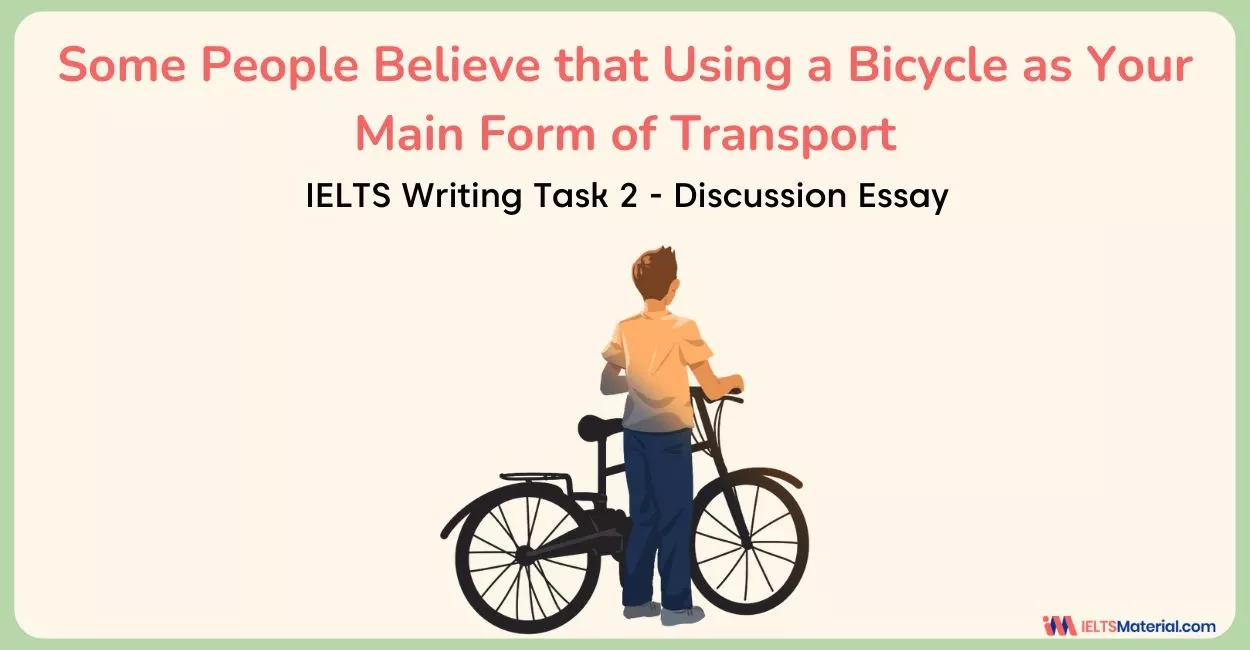
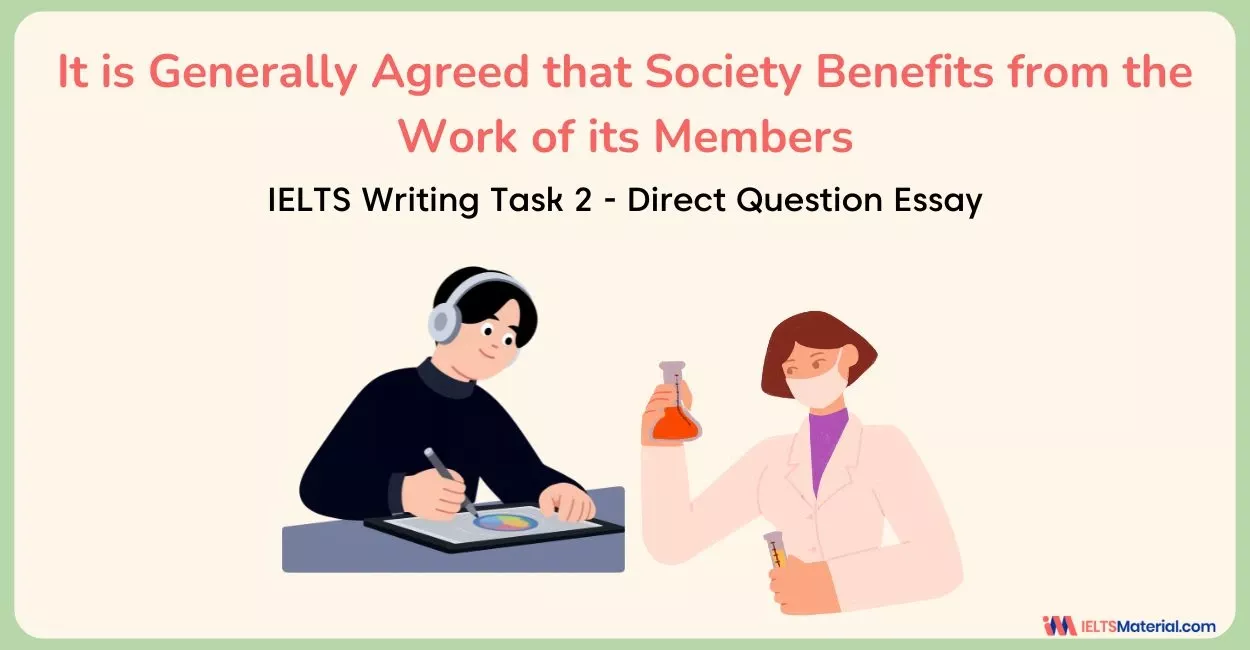
Recent Articles

Haniya Yashfeen
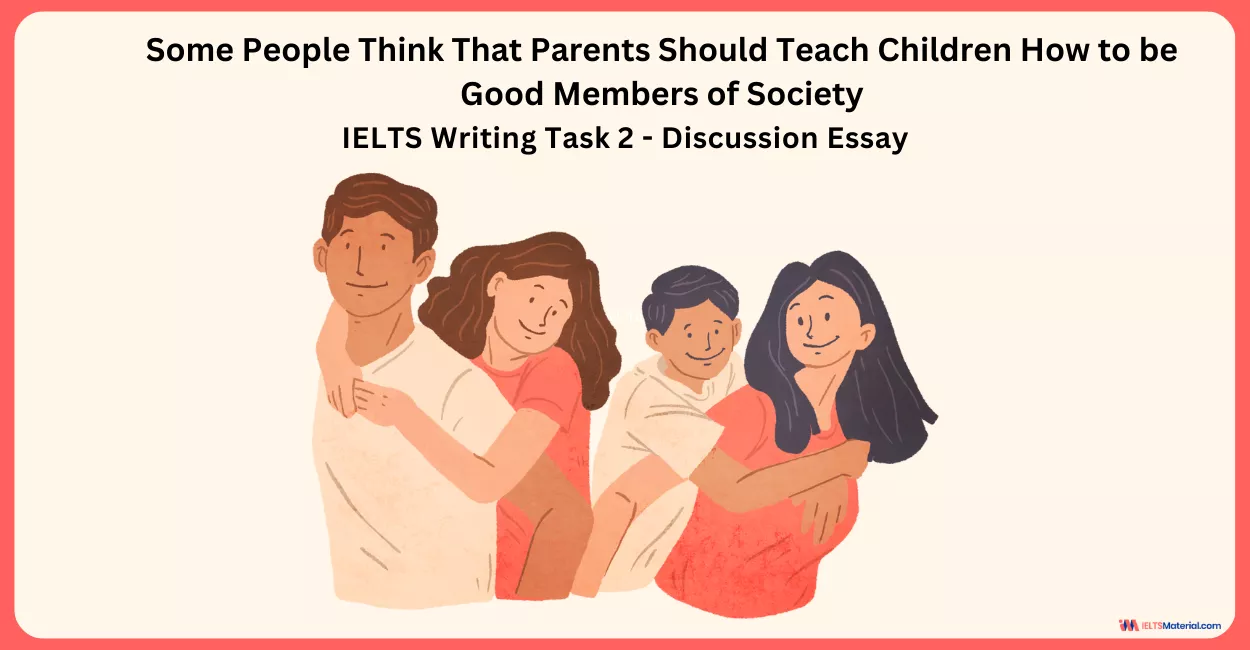

Prity Mallick

Kasturika Samanta


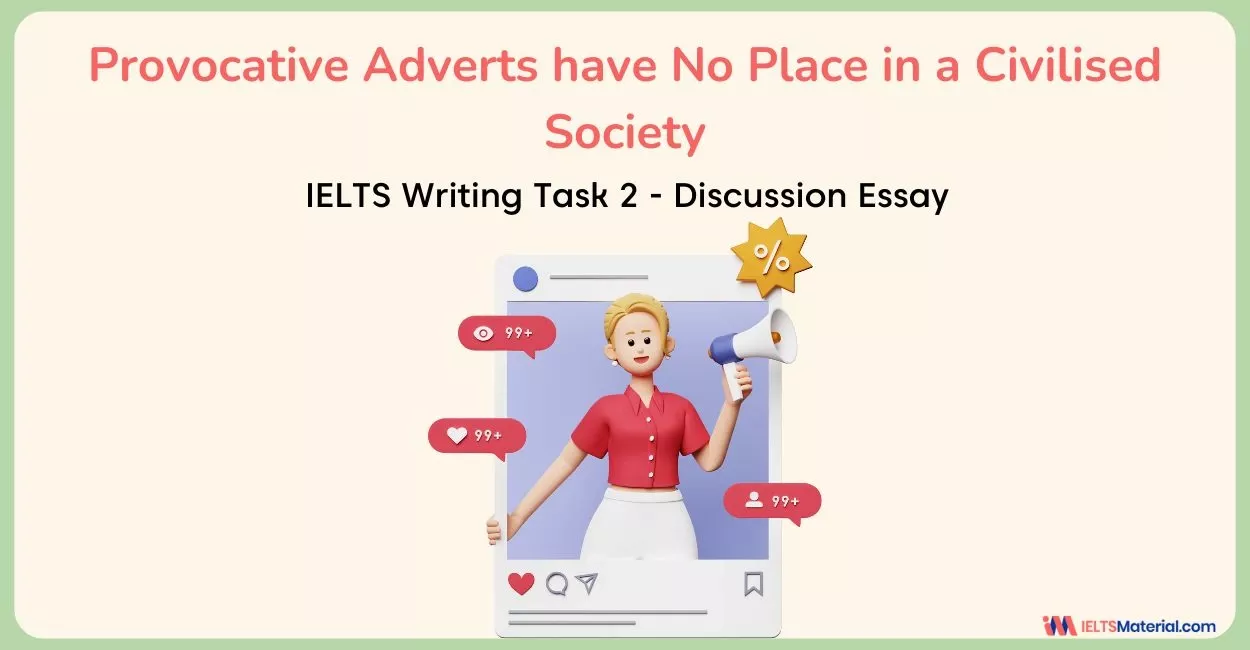
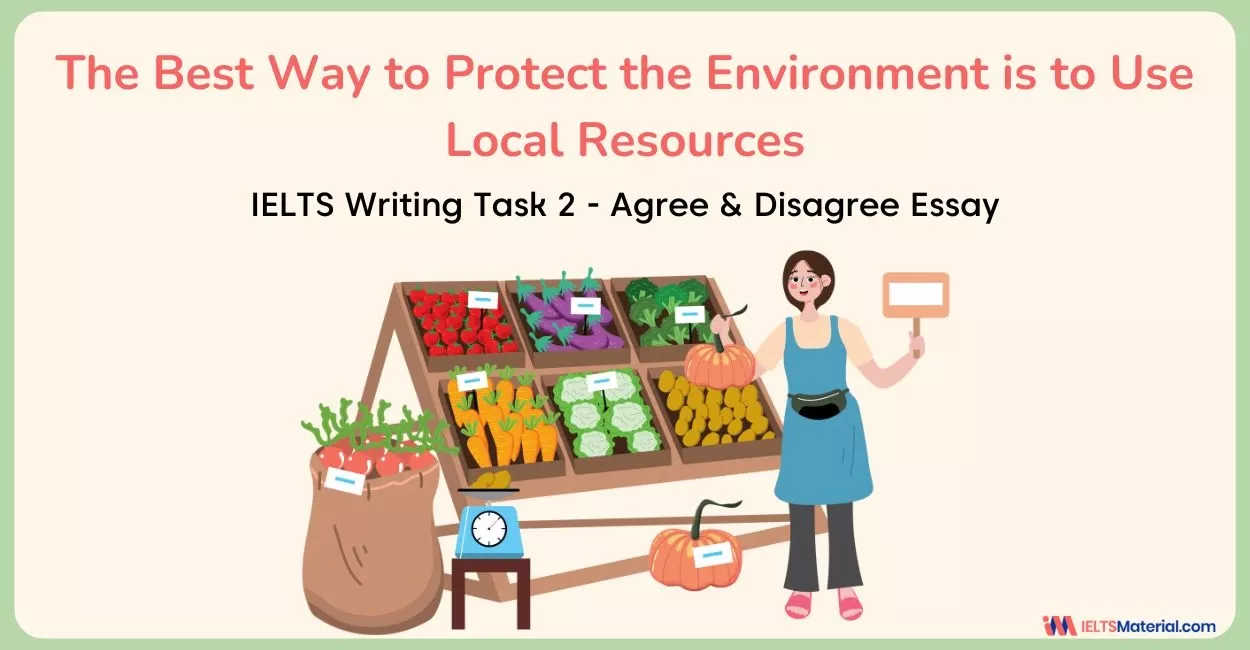


Post your Comments